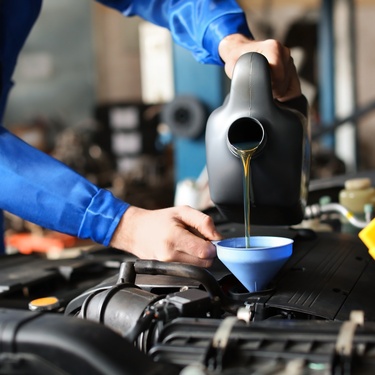
Engine oil degradation occurs when your motor oil breaks down and loses its ability to lubricate, clean, and protect your engine effectively. This natural process can accelerate due to heat, contamination, and time, leading to costly engine damage and reduced performance. Understanding how to prevent engine oil degradation will extend your engine's lifespan and save you money on repairs.
Regularly Check and Maintain Oil Levels
Monitoring your oil level is one of the most effective ways to protect your engine. Low oil levels force the remaining oil to work harder, causing it to break down faster under increased stress and heat. Check your dipstick at least once a month when the engine is cool and parked on level ground.
If you notice the oil level dropping between changes, investigate potential leaks or consumption issues promptly. Maintaining proper oil levels ensures adequate lubrication and reduces the strain that accelerates degradation.
Use High-Quality Engine Oil and Filters
The quality of your oil and filter directly impacts how well your engine performs and how long the oil remains effective. Premium synthetic oils resist breakdown better than conventional oils, especially under extreme temperatures and driving conditions.
Similarly, high-quality filters trap more contaminants that would otherwise circulate through your engine and accelerate oil breakdown. When it comes to understanding the causes of engine oil degradation, remember that inferior products simply cannot withstand the demanding environment inside your engine as effectively as premium alternatives.
Schedule Regular Oil Changes
Sticking to a consistent oil change schedule prevents degraded oil from damaging your engine. While many drivers follow the traditional 3,000-mile rule, modern engines and oils often allow for longer intervals. Consult your owner's manual for manufacturer recommendations but consider your driving conditions too.
Stop-and-go traffic, extreme temperatures, and dusty environments may require more frequent changes. Fresh oil maintains its protective properties and removes harmful deposits that accumulate over time.
Avoid Short Trips and Excessive Idling
Short trips prevent your engine from reaching optimal operating temperature, which means the oil never gets hot enough to evaporate moisture and fuel contaminants. This leads to sludge formation and accelerated degradation.
Similarly, excessive idling causes oil to break down without the benefit of highway driving that helps burn off contaminants. Whenever possible, combine errands into longer trips and avoid unnecessary idling.
Knowing how to prevent engine oil degradation requires consistent attention to these fundamental practices. By implementing these four tips, you'll protect your investment and ensure reliable performance for years to come.
Bio: Casey is a passionate copyeditor highly motivated to provide compelling SEO content in the digital marketing space. Her expertise includes a vast range of industries from highly technical, consumer, and lifestyle-based, with an emphasis on attention to detail and readability.




















